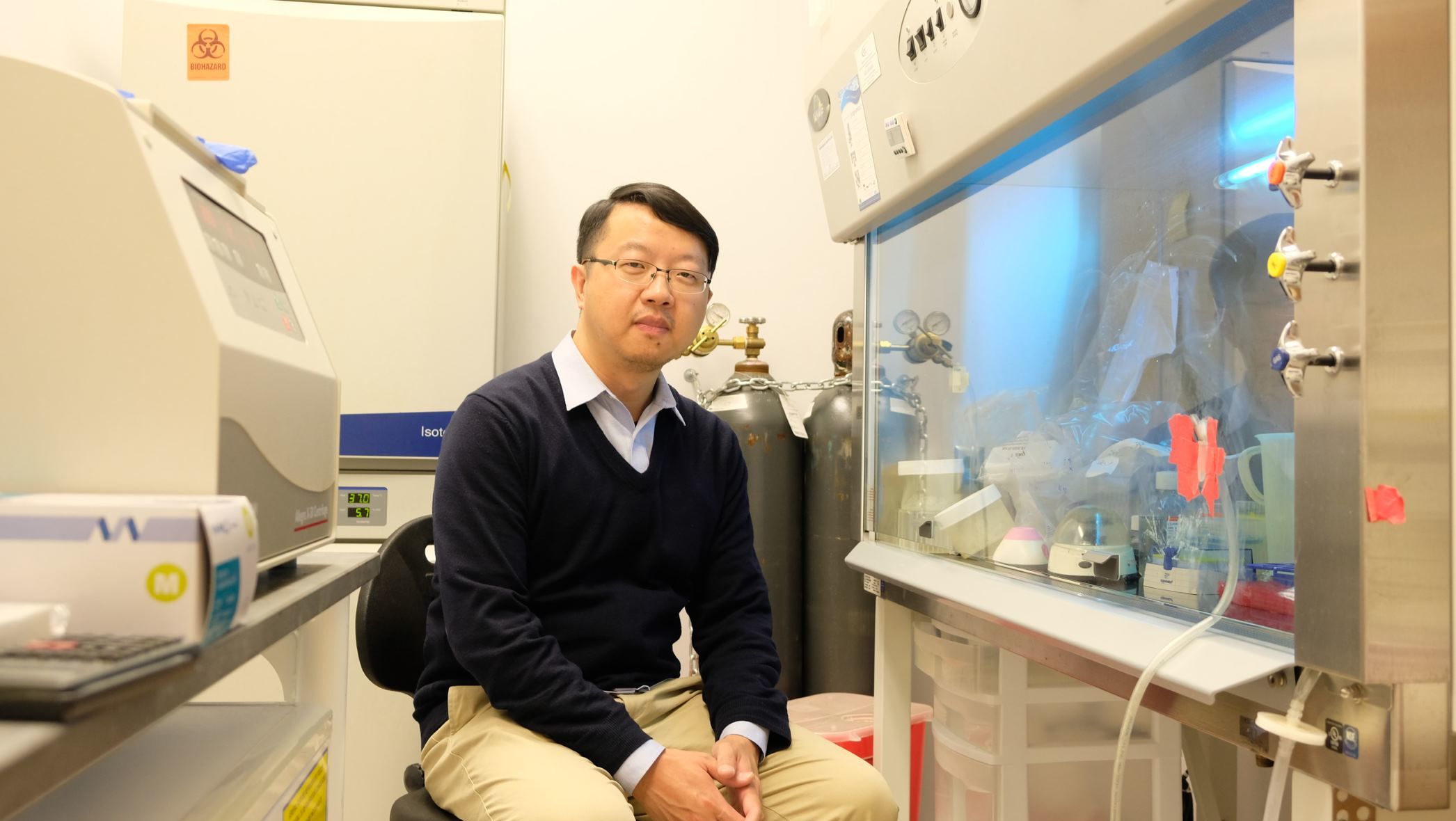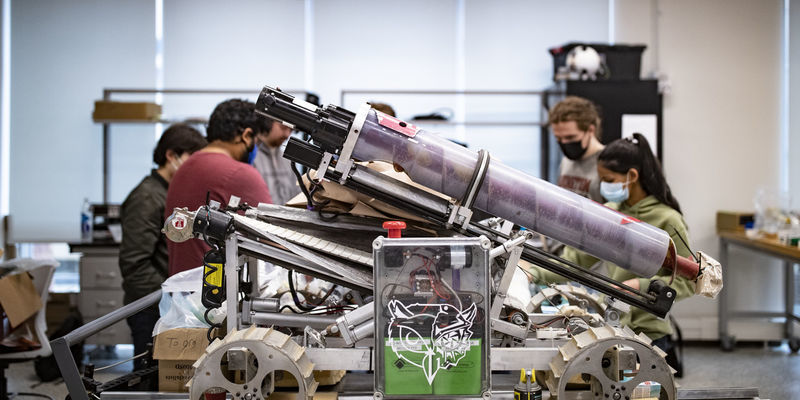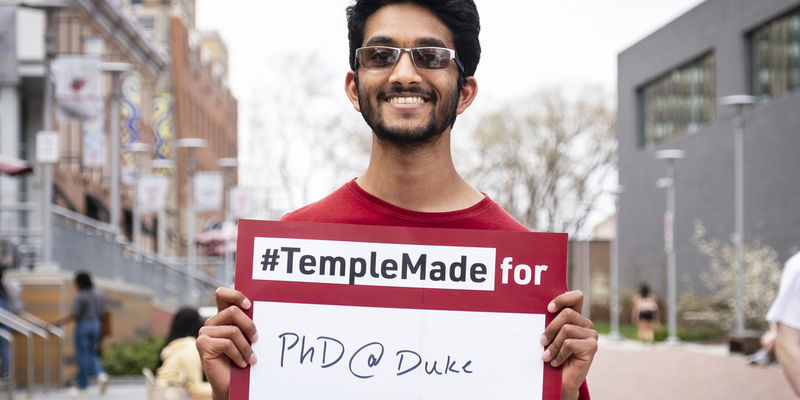Temple chemistry professor wins Young Chemical Biologist Award
Ross Wang, assistant professor of chemistry, has been selected as a recipient of the The International Chemical Biology Society’s Young Chemical Biologist Award for his significant contributions to the field of bioorthogonal chemistry.

The International Chemical Biology Society (ICBS) has selected Rongsheng (Ross) Wang, assistant professor of chemistry, as a 2022 Young Chemical Biologist awardee.
ICBS cited Wang’s significant contributions to the field of bioorthogonal chemistry (the study of chemical reactions that occur inside of living systems without interfering with native biochemical processes) through his pioneering work in developing a selective fluorine displacement reaction. These tools are being further developed to explore cell biology in various disease states, which could lead to new diagnostic tools for human diseases such as cancer, inflammation and autoimmune disorders.
“I’m honored and excited to join an international community of outstanding researchers working under the common goal of uncovering solutions for diseases and promoting research and education at the interface of chemistry and biology,” said Wang.
Earlier this year, Wang received a five-year, $700,000 award from the National Science Foundation to develop chemistry-aided imaging techniques of cellular components. In 2021, he was selected as a Cottrell Scholar, one of 25 outstanding teacher-scholars in chemistry, physics and astronomy, by the Research Corporation for Science Advancement.
“Ross has established a thriving research group at Temple and we are thrilled with his success,” said Ann Valentine, professor and chair of the Department of Chemistry. “His team is doing groundbreaking research in bioorthogonal chemistry and chemical biology probes, one of the hottest areas of chemistry right now and the focus of the chemistry Nobel Prize this year. We’re so proud that ICBS recognized Ross’s research excellence.”
Selection of this year’s three awardees was made on the basis of accomplishments, groundbreaking contributions to chemical biology and promise as future leaders who will serve the chemical biology community.
According to Wang, the Chemistry Department has built a very welcoming atmosphere for researchers, faculty and students. “I appreciate the department’s support for me to pursue interdisciplinary research and establish a chemical biology research group over the past six years,” said Wang. “I’ve been given enough room to set up a vigorous chemical biology education program here with new courses. Temple’s motto is Perseverance Conquers and that is such a great motto in general and especially for chemistry.”
- Greg Fornia

